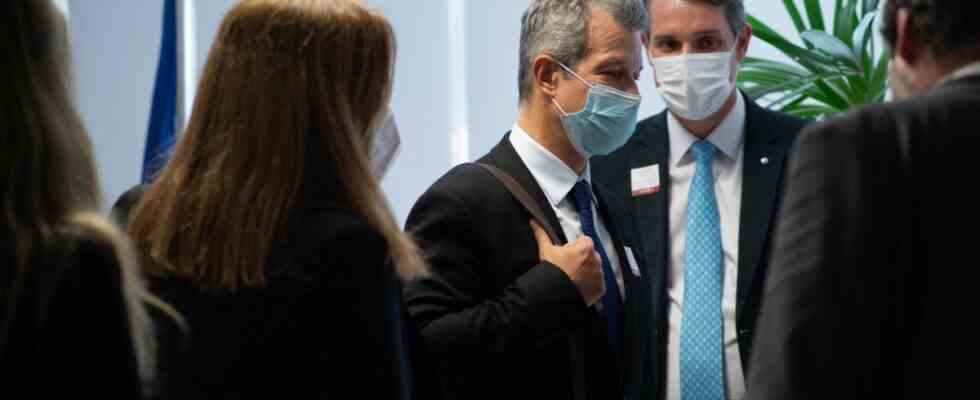Was there slave labor on the Amazon farm of a subsidiary of Volkswagen do Brasil decades ago? The Brazilian public prosecutor’s office responsible for labor law is investigating this allegation and held talks with the car manufacturer’s lawyers in the capital Brasília on Tuesday. As the prosecution saidshe requested further documents from the company, which should show the extent of the damage caused and the number of workers affected.
The matter is about alleged abuses in the 1970s and 80s. According to the information, a new hearing was scheduled for September 29. Then there should also be a written statement from Volkswagen do Brasil, said the responsible public prosecutor Rafael Garcia Rodrigues. “Prosecutors are confident that we will eventually have adequate redress,” Garcia Rodrigues said.
Responsible for the procedure: public prosecutor Rafael Garcia Rodrigues.
(Photo: Andressa Andressa/dpa)
According to the investigator, the “Fazenda Volkswagen”, a large-scale cattle breeding operation, was one of the largest companies in the rural Amazon region. At the time, the car company wanted to get into the meat business. The farm was founded in the 1970s and supported by the Brazilian military dictatorship. It was around 1390 square kilometers in size and had around 300 workers. The temporary workers responsible for the clearing, to whom the allegation of slave labor mainly refers, were not directly employed by the subsidiary.
The investigation began in 2019 after prosecutors received incriminating evidence from a slave labor research group at the Federal University of Rio de Janeiro. “We can assure you that we take the events described on the Fazenda Rio Cristalino very seriously,” said a spokesman for Volkswagen AG when asked when the Brazilian public prosecutor summoned VW do Brasil two weeks ago. However, due to a possible legal process in Brazil, they did not want to comment further, it was said at the time.
“What happened on the fazenda represents serious human rights violations, also because slave labor was used,” said prosecutor Garcia Rodrigues. “Since it was owned by Volkswagen, the company is also responsible for it.” He spoke, for example, of unacceptable accommodation with miserable hygiene conditions, health risks and a lack of drinking water. There was also a lack of fresh food on the farm known as “Fazenda Volkswagen” in Santana do Araguaia in the state of Pará. In addition, armed guards and a system of debt bondage prevented the workers from leaving the farm. These are characteristics of modern slave labor.

